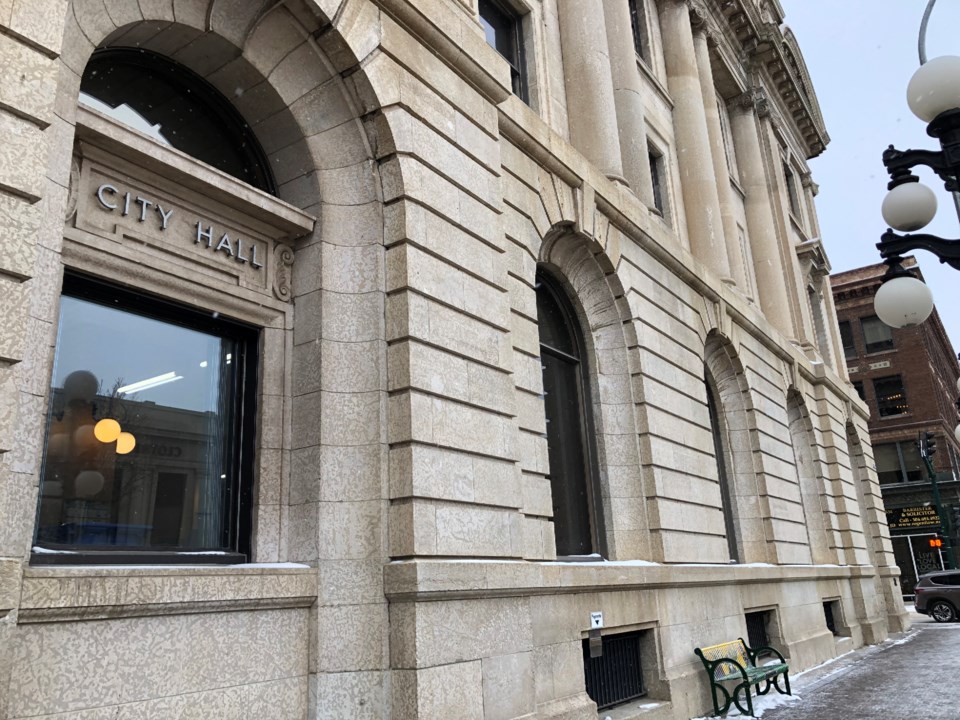MOOSE JAW — Total spending in this year’s budget will be nearly $140 million, which is a decrease of almost $20 million compared to last year or a drop of almost 14 per cent.
The 2025 budget proposes total spending of $139,902,241 versus $158,992,450 last year, a decrease of $19,090,209 or roughly 13.65 per cent, the budget report shows. This drop is because capital spending has decreased.
Spending differences between this year and last year show:
- General operating (daily spending) budget, including transit: $65,798,132 / $61,564,980
- General capital (projects) budget spending: $13,806,569 / $20,627,989
- Land development capital spending: $1,190,000 / $1,675,000
- Equipment reserve budget spending: $3,713,162 / $1,135,235
- Utility operating budget: $33,146,744 / $31,462,053
- Utility capital budget request for new spending: $22,247,634 / $42,457,193
The document shows that operating revenues will increase by $1,795,590 — or 2.89 per cent — to $64,033,529, while expenses will increase by $2,910,443 — or 4.68 per cent — to $65,148,382.
The rise is due to negotiated collective agreement increases, inflation on non-salary budget areas, funding for the police service and municipal inflationary increases being higher than general consumer price index (CPI) inflation, the report continued.
“This is a status quo budget, and what that means is new requests are to be a decision of city council,” finance director Brian Acker said during the Jan. 14 budget meeting. “So, there aren’t new requests built into this budget. We haven’t added a service or program or anything like that.
“But … status quo does not mean zero (increases in expenses).”
For example, a new grader cost roughly $400,000 four years ago but is now $650,000, while a new aerial ladder fire truck cost $1.4 million over a year ago but is now $3.3 million, he continued. That means city administration must provide more money for reserve contributions to replace aging equipment.
“That is a significant cost increase. And you’ll see a number of those throughout the budget … ,” Acker added.
The general capital budget — which includes $12,194,294 in carry-forward funding — proposes:
- $19,274,700 for transportation
- $5,841,757 for parks and recreation
- $3,445,947 for other services
- $85,000 for the police service
- $782,184 for the Events Centre
- $1,998,000 for storm sewers
- $4,012,361 for land development
The equipment reserve budget — which includes $3,470,259 in carry-forward money — proposes:
- $1,870,065 for public works equipment
- $335,890 for parks and rec equipment
- $270,092 for information technology equipment
- $245,739 for the library
- $482,310 for the Events Centre
- $509,066 for all other departments and third-party groups
The utility operating budget consists of the waterworks and wastewater utility and the solid waste utility and proposes spending $15,732,782 in the waterworks division and $11,276,954 in the wastewater division, the report said. City administration is asking council to approve four-per-cent increases in each division.
The solid waste utility proposes spending $6,137,008, which includes a proposed increase to garbage and recycling collection fees of $4.92 annually.
The utility capital budget for projects proposes:
- $12,485,234 for the waterworks division
- $33,524,750 for the wastewater division
- $9,794,400 for the solid waste division
Municipal taxation is the largest revenue source for the operating budget at 58.55 per cent, with city hall expecting to collect $37,492,473 this year compared to $36,692,578 last year — an increase of $799,895 or 2.18 per cent, the report said. In comparison, in 2015, the city collected under $25 million in municipal taxation.
Furthermore, salaries and benefits represent roughly 50 per cent of all operating expenses, making them one of the biggest expenses.
Meanwhile, the document noted that commercial property appeal losses were lower last year than in the past since successful appeals led to a loss of municipal tax revenue of just $147,678. In comparison, past years saw losses of $400,000.
This decrease is due to the contractor handling Board of Revision services and the Saskatchewan Municipal Board responding to appeals more quickly, said Acker. Meanwhile, administration can cover that small loss through regular taxation efforts.
Moose Jaw will also receive over $8 million through the provincial revenue-sharing grant program this year, which is $513,599 more than last year, he added. This formula provides predictable funding, which allows city hall to begin its budget planning process earlier than if there was no funding.




